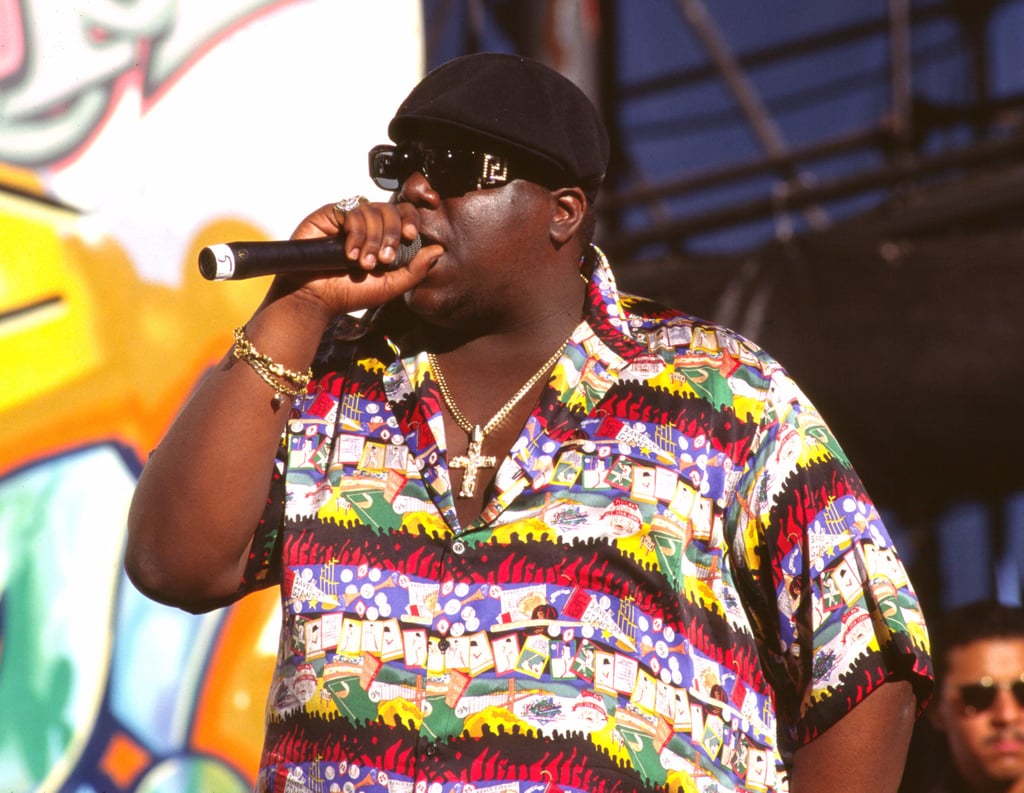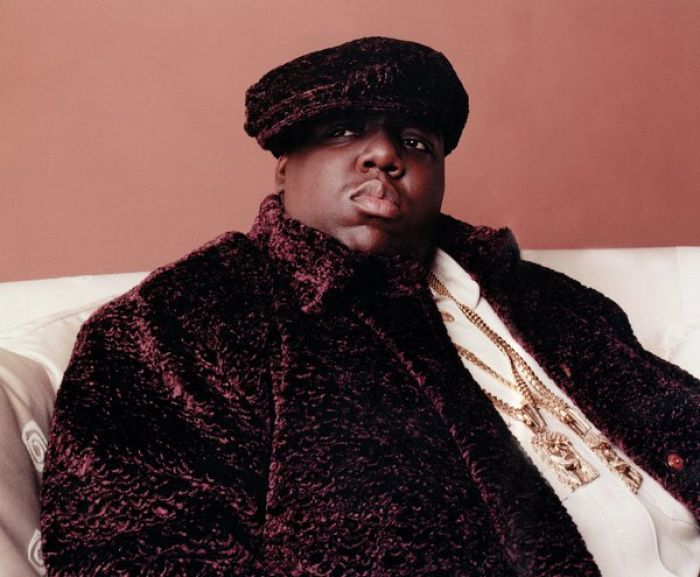When did Biggie die? This question has haunted fans of rap music for decades. On March 9, 1997, the world lost one of its most iconic figures in hip-hop. The Notorious B.I.G., also known as Biggie Smalls, was gunned down in a drive-by shooting in Los Angeles. At just 24 years old, his life was cut tragically short, leaving behind a legacy that continues to inspire millions around the globe.
Biggie's death sent shockwaves through the music industry and beyond. It wasn't just about losing a talented artist; it was about losing a voice that represented an entire generation. His music spoke to people from all walks of life, transcending race, gender, and socioeconomic status. Through his lyrics, he painted vivid pictures of life in the inner city, turning struggles into art.
But let's not get ahead of ourselves. To truly understand the impact of Biggie's passing, we need to dive deep into his life, career, and the circumstances surrounding his untimely death. So grab a seat, pour yourself a drink, and let's explore the story behind one of hip-hop's greatest legends.
Read also:Unveiling The Cast Of Beetlejuice A Deep Dive Into Their Lives And Legacies
Here's what we'll cover:
- Biggie's Biography
- Early Life and Background
- Music Career
- East Coast vs. West Coast Rivalry
- The Day Biggie Died
- Investigation and Theories
- Biggie's Legacy
- Impact on Hip-Hop
- Memorials and Tributes
- Conclusion
Biggie's Biography
Personal Information
Before we dive into the nitty-gritty, here's a quick overview of the man behind the music. Christopher George Latore Wallace, better known as The Notorious B.I.G., was born on May 21, 1972, in Brooklyn, New York. He grew up in the rough neighborhoods of Bedford-Stuyvesant, which heavily influenced his music and worldview.
| Full Name | Christopher George Latore Wallace |
|---|---|
| Born | May 21, 1972, Brooklyn, New York |
| Died | March 9, 1997, Los Angeles, California |
| Stage Name | The Notorious B.I.G., Biggie Smalls |
| Occupation | Rapper, Songwriter |
| Genre | Hip-Hop, Rap |
Early Life and Background
Biggie's early life wasn't easy. Growing up in Bed-Stuy during the '80s, he witnessed firsthand the struggles of poverty, crime, and drugs. Despite dropping out of high school, he found solace in writing rhymes. His unique flow and storytelling ability set him apart from other rappers, even at a young age.
He began hustling on the streets to make ends meet but always kept his love for music alive. In fact, his mom, Voletta Wallace, once caught him sneaking into the studio late at night to record tracks. That dedication would eventually pay off big time.
Music Career
Biggie's breakthrough came when he caught the attention of Sean "Puffy" Combs, who signed him to Bad Boy Records. His debut album, "Ready to Die," dropped in 1994 and instantly became a classic. Tracks like "Juicy" and "Big Poppa" showcased his lyrical genius and cemented his place in hip-hop history.
His second album, "Life After Death," released posthumously in 1997, solidified his status as one of the greatest rappers of all time. The album went on to sell millions of copies and earned him two Grammy nominations.
Read also:Suicide Squad 2 Cast The Ultimate Lineup You Need To Know About
East Coast vs. West Coast Rivalry
Now, we can't talk about Biggie's death without addressing the infamous East Coast vs. West Coast rivalry. This beef between Biggie and Tupac Shakur became the backdrop for one of the darkest periods in hip-hop history. While both rappers denied any personal animosity, their camps were deeply entrenched in the conflict.
Some argue that record labels and media outlets fueled the feud for financial gain. Others believe it stemmed from genuine disagreements over music and territory. Regardless, the rivalry ultimately led to tragic consequences for both artists.
The Day Biggie Died
Let's rewind to March 9, 1997. Biggie had just attended a soul train music awards party in Los Angeles. As his convoy left the event, a black SUV pulled up beside their car and opened fire. Biggie was hit multiple times and pronounced dead at a nearby hospital.
His death shook the entire music industry. Fans and fellow artists alike mourned the loss of such a talented individual. The tragedy also reignited debates about gun violence and the dangers of gang culture in rap music.
Investigation and Theories
Official Investigation
Despite numerous investigations over the years, Biggie's murder remains unsolved. The LAPD initially labeled it a gang-related crime, but many believe there's more to the story. Over the years, various theories have emerged, ranging from organized crime involvement to government conspiracies.
Conspiracy Theories
One popular theory suggests that the murder was orchestrated by members of Death Row Records, Tupac's label at the time. Others point to possible connections with the LAPD or even the FBI. While none of these theories have been proven, they continue to fuel speculation among fans and investigators alike.
What we do know is that the lack of closure has only added to the mystery surrounding Biggie's death. For many, it serves as a reminder of the dangers faced by artists in the music industry.
Biggie's Legacy
Even though his life was tragically cut short, Biggie's influence on hip-hop is undeniable. He paved the way for future artists with his unique style and storytelling ability. Songs like "Hypnotize" and "Mo Money Mo Problems" remain staples in rap music to this day.
His impact extends beyond music as well. Biggie's larger-than-life personality and charisma continue to inspire new generations of fans. He proved that you could come from nothing and still achieve greatness through hard work and determination.
Impact on Hip-Hop
Biggie's contribution to hip-hop goes far beyond his music. He helped bridge the gap between East Coast and Southern rap, paving the way for artists like Jay-Z, Nas, and Lil Wayne. His collaborations with other artists also showcased his willingness to experiment and push boundaries.
Moreover, he broke down barriers in the industry by proving that a rapper from Brooklyn could compete with West Coast giants like Dr. Dre and Snoop Dogg. His success demonstrated that authenticity and storytelling mattered just as much as flashy production and marketing.
Memorials and Tributes
Over the years, countless tributes have been paid to Biggie in honor of his legacy. From murals in Brooklyn to documentaries and biopics, his memory lives on through the hearts of fans worldwide. In 2020, he was inducted into the Rock and Roll Hall of Fame, further cementing his place in music history.
Artists like Kendrick Lamar and Drake frequently reference Biggie in their music, paying homage to his influence. Fans continue to gather at his gravesite in Brooklyn, leaving flowers and notes as a sign of respect.
Conclusion
So, when did Biggie die? March 9, 1997, but his legacy lives on forever. His music continues to inspire millions, and his story serves as a reminder of the power of art to transcend adversity. While his death remains a mystery, his impact on the world is undeniable.
We encourage you to share your thoughts in the comments below. Do you have a favorite Biggie track? What do you think about the theories surrounding his death? Let's keep the conversation going and honor his memory by celebrating his incredible contributions to music.
And don't forget to check out our other articles on legendary artists who shaped the music industry. There's always more to learn, and Biggie's story is just one piece of the puzzle.


